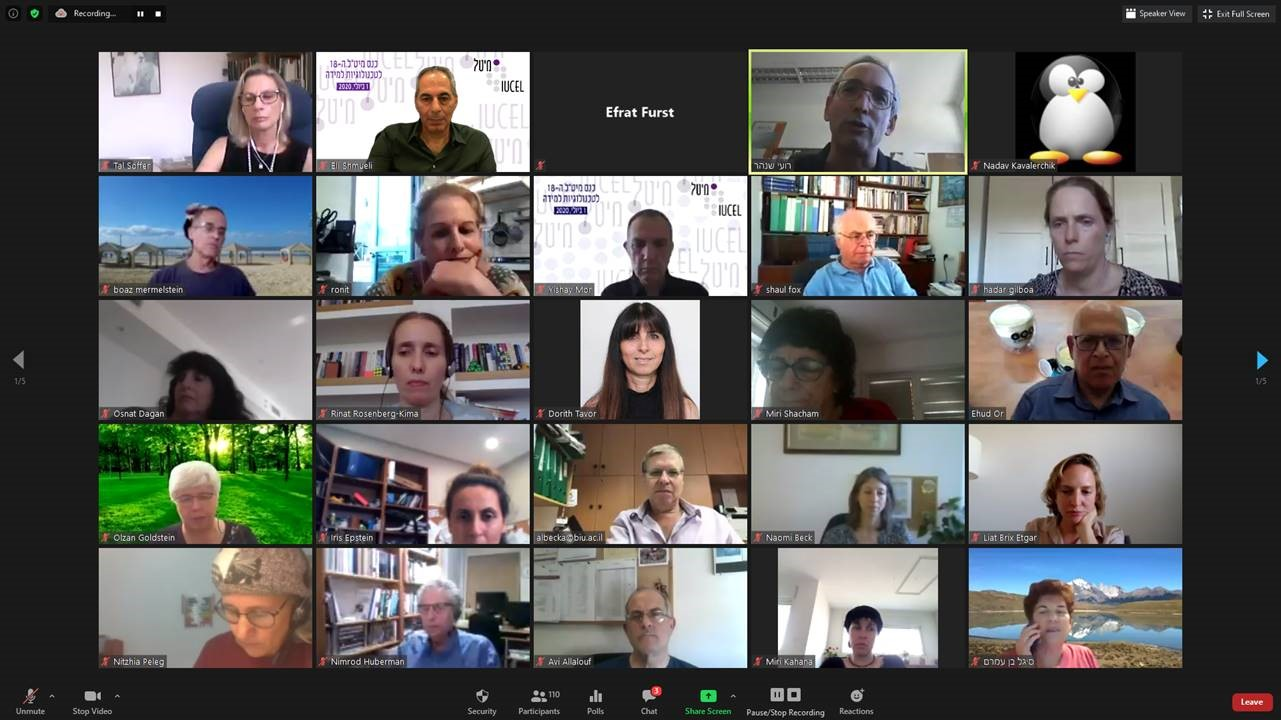The 18th Annual MEITAL Conference on Teaching and Learning Technologies Accelerating Higher Education: Trends and Developments was held in an online format this year over two days, including interactive workshops, on July 1-2, 2020. The conference was attended by about 380 participants from academia, the education system, the IDF and industry from Israel and abroad. As befits a conference that deals with learning technologies, the program combined asynchronous and synchronous learning experience and interactive workshops.
Several days before the conference, the MEITAL team published relevant materials and content received from the presenters on the dedicated conference website. This included videos, presentations, articles, position papers, surveys and links that allowed for review and preliminary discussions using interactive annotation tools.
The online conference was held on Wednesday, July 1, 2020, in diverse digital spaces that allowed different types of meetings and styles:
- In the Opening Keynote Donald Clark thoughtfully presented the changes in the world of learning through the use of AI to enhance the learning experience, content creation and evaluation.
- A plenary lecture by Prof. Sheizaf Rafaeli inspired participants with shared experiences, insights and research findings on the dramatic transition to online instruction in the current Corona crisis.
- Twelve parallel sessions offered over 60 lectures that touched on a wide range of applied and research aspects. These included teaching in the era of Corona, learning design, social equality, teaching models, online teaching in various disciplines, alongside many research sessions and dozens of presentations from Spain, Italy, Cyprus, Canada, England, the U.S. and more.
- An international track of partners from abroad presented approaches and tools for learning design, use of open learning materials and workshops.
- A 3-D poster exhibition combined creativity among multiple participants
- Virtual rooms allowed for hands-on experience with various tools and platforms from conference sponsors
- A break where everyone joined for light exercises
- The day concluded with a leadership panel and policy leaders who offered insight into the ramifications that will remain in the post-Corona world.
A unique series of workshops followed on July 2, opening with an international workshop with leading researchers from the UK, Spain, Australia and Hong Kong. They invited attendees to experiment using learning design tools developed by their research groups. This was followed by three parallel workshops on methodological and experimentation with a wide range of digital tools.
The conference recordings are available on the conference website
